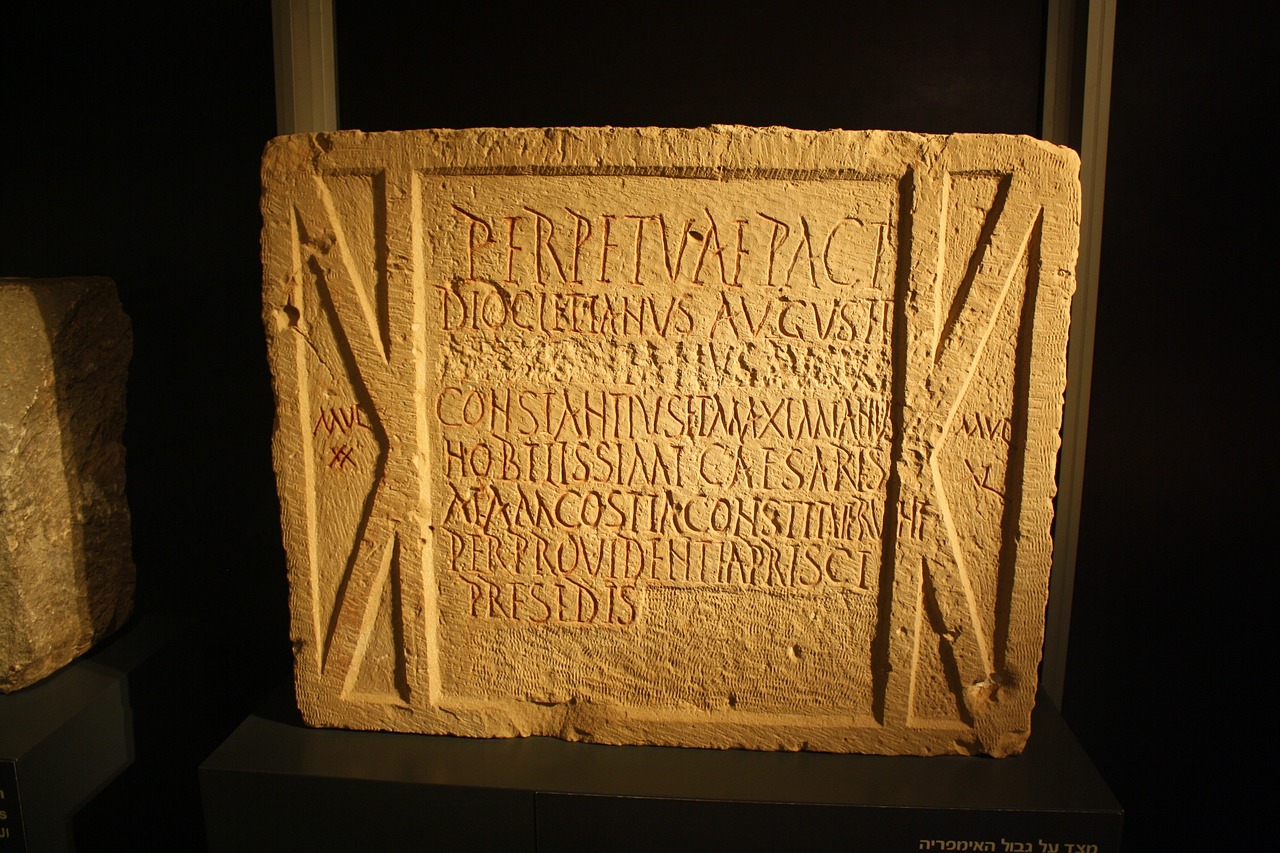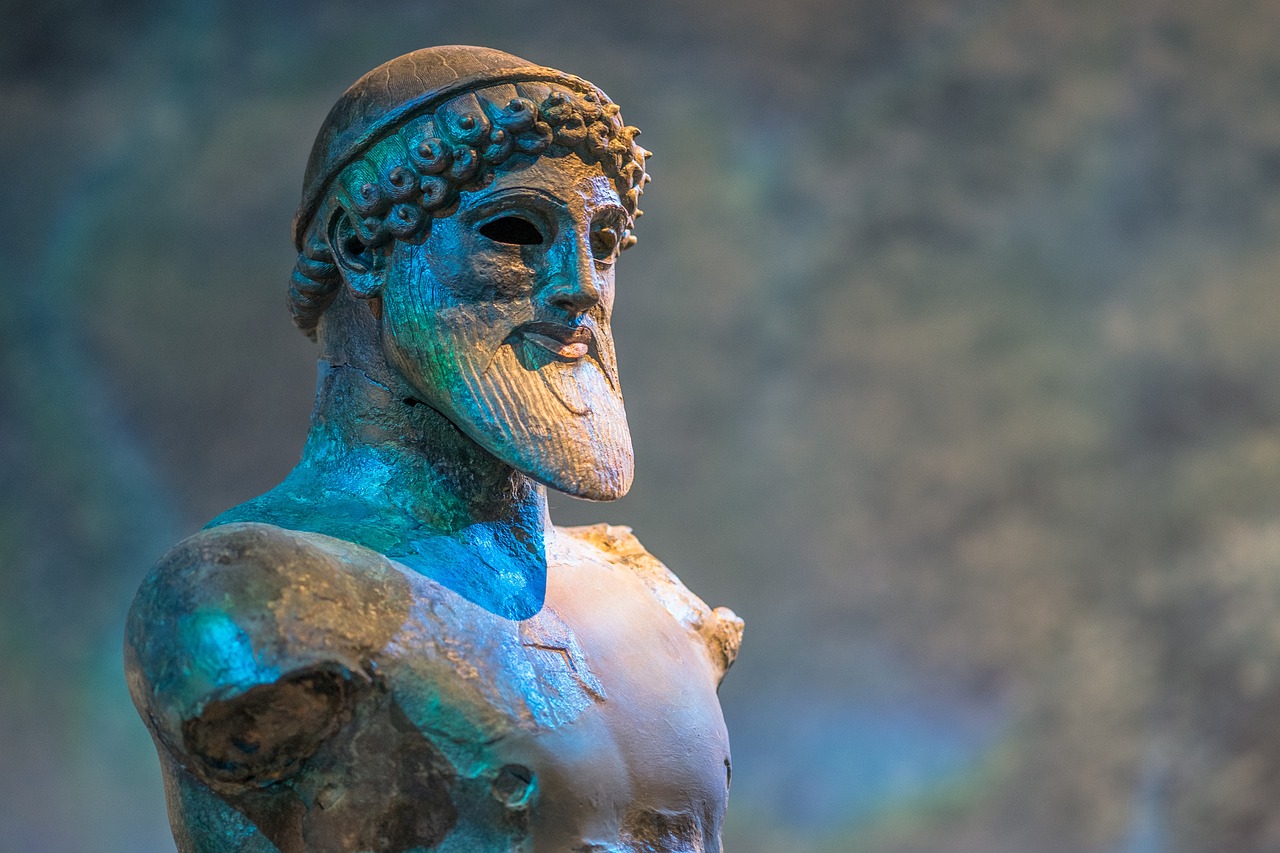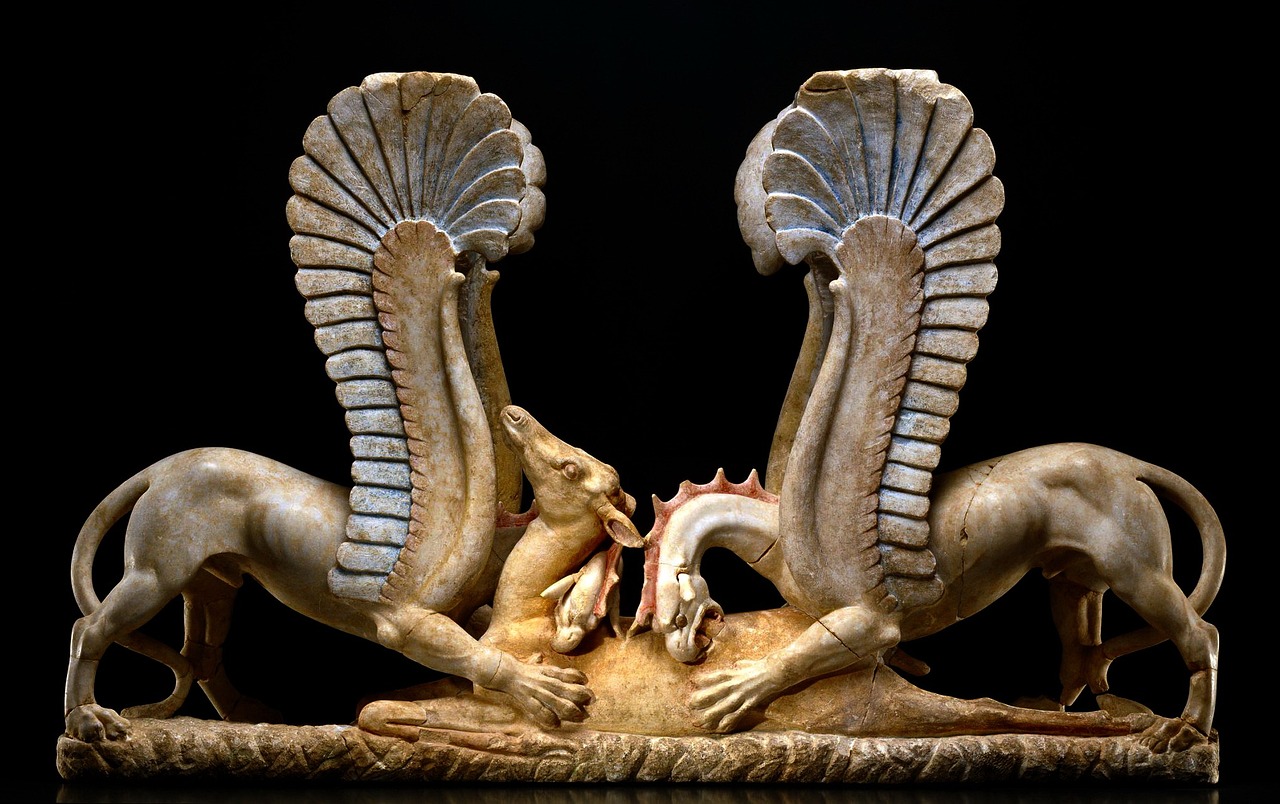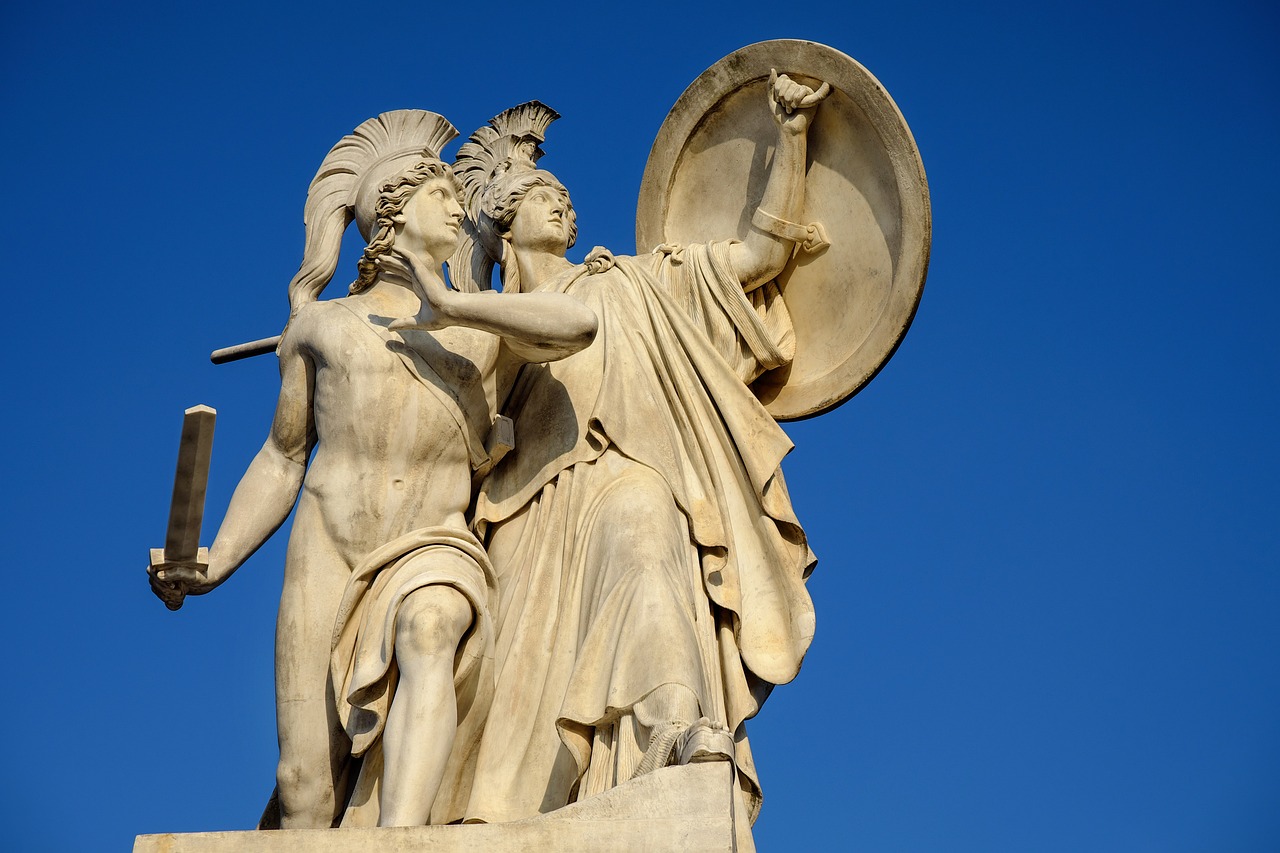The Legacy of Ancient Greek Philosophy on Western Thought
Ancient Greek philosophy stands as a towering pillar in the history of Western thought, casting a profound and enduring influence across centuries. The intellectual legacy left by ancient Greek philosophers continues to shape the way we perceive the world, reason, and contemplate existence. From the foundational principles laid down by thinkers like Socrates, Plato, and Aristotle to the intricate debates in metaphysics, ethics, and aesthetics, Greek philosophy has woven itself into the fabric of Western intellectual tradition.

Foundations of Ancient Greek Philosophy
Ancient Greek philosophy stands as the cornerstone of Western thought, laying the foundation for centuries of intellectual inquiry and philosophical exploration. Emerging in the 6th century BCE, Greek philosophy was a revolutionary departure from mythological explanations of the world, seeking instead to understand the nature of reality through reason and logic. Key figures such as Thales, Pythagoras, and Heraclitus paved the way for the development of philosophical thought, introducing concepts that continue to shape our understanding of the world.

Impact on Ethics and Morality
When exploring the profound impact of ancient Greek philosophy on Western thought, it is essential to delve into various aspects that have shaped intellectual traditions over centuries. From the foundational principles laid down by key figures to the enduring influence on ethics, politics, metaphysics, aesthetics, logic, and modern philosophical discourse, Greek philosophy continues to resonate in contemporary society.
Ancient Greek philosophy played a pivotal role in shaping Western concepts of ethics, morality, and virtue. The philosophical ideas put forth by thinkers such as Socrates, Plato, and Aristotle laid the groundwork for ethical frameworks that continue to influence societal norms and individual moral reasoning.
These philosophers pondered questions of right and wrong, the nature of justice, and the essence of good life, providing a philosophical foundation for ethical inquiry that remains relevant today. The emphasis on virtues such as courage, wisdom, temperance, and justice has permeated Western ethical thought, guiding individuals in their moral decision-making processes.
Furthermore, the exploration of ethical dilemmas and the pursuit of the highest good have been central themes in Greek philosophy, fostering a deeper understanding of human behavior and the complexities of ethical reasoning.
Through dialogues, treatises, and philosophical inquiries, ancient Greek thinkers established a legacy that continues to inform ethical debates and discussions in contemporary society, highlighting the enduring relevance of their contributions to ethical and moral philosophy.
Q: How did ancient Greek philosophy influence modern ethical theories?
A: Ancient Greek philosophical ideas laid the foundation for modern ethical theories by introducing concepts of virtue ethics, consequentialism, and deontology that continue to shape ethical discourse today.
Q: What role did Socrates play in the development of Greek ethical philosophy?
A: Socrates' method of questioning and emphasis on self-examination were instrumental in challenging traditional ethical beliefs and encouraging individuals to critically reflect on their moral values and actions.
Q: How have Aristotle's ethical teachings influenced Western ethical thought?
A: Aristotle's ethical framework, centered on the concept of eudaimonia (human flourishing), has had a lasting impact on Western ethics by emphasizing the importance of virtuous character development and the pursuit of a meaningful life.

Development of Political Philosophy
When delving into the realm of political philosophy, one cannot overlook the profound impact of ancient Greek thinkers on the development of political thought. The roots of political philosophy can be traced back to the works of renowned philosophers such as Plato and Aristotle, whose ideas continue to shape the way we perceive governance and societal organization.
Plato, in his seminal work "The Republic," presented a detailed examination of the ideal state and the concept of philosopher-kings. His allegory of the cave symbolizes the journey from ignorance to enlightenment, reflecting his views on the role of education in shaping a just society. Aristotle, on the other hand, dissected different forms of government in his work "Politics," laying the groundwork for modern political theory.
These ancient Greek philosophers contemplated questions of justice, the nature of the state, and the ideal form of government, influencing subsequent generations of political thinkers. Their emphasis on the importance of virtue, wisdom, and the common good in governance continues to resonate in contemporary political discourse.

Contributions to Metaphysics and Epistemology
Ancient Greek philosophers made significant contributions to the fields of metaphysics and epistemology, laying the groundwork for Western philosophical inquiries into the nature of reality and knowledge. Metaphysics, the branch of philosophy that deals with the fundamental nature of existence, reality, and being, was deeply explored by thinkers like Plato and Aristotle. They pondered questions about the ultimate nature of reality, the existence of the soul, and the relationship between the physical world and abstract concepts.
In the realm of epistemology, which concerns the study of knowledge and how we come to know things, ancient Greek philosophers such as Socrates, Plato, and Aristotle delved into the nature of truth, belief, and justification. They grappled with questions about the reliability of our senses, the possibility of certain knowledge, and the methods of reasoning and inquiry. These philosophical inquiries laid the foundation for the development of Western theories of knowledge and rationality.
Through their contemplations on metaphysics and epistemology, ancient Greek philosophers introduced enduring concepts that continue to shape philosophical discourse today. The distinction between appearance and reality, the nature of knowledge and belief, and the pursuit of truth through critical thinking and logical reasoning are all legacies of their intellectual endeavors. Their contributions have influenced not only the fields of metaphysics and epistemology but also broader philosophical discussions on the nature of existence, consciousness, and the limits of human understanding.

Influence on Aesthetics and Art
Ancient Greek philosophy has left an indelible mark on the world of aesthetics and art, shaping the way we perceive beauty and artistic expression. The Greeks believed that beauty was intricately connected to goodness and truth, a concept that resonates through the centuries and continues to influence artistic creation today. The philosopher Plato, for instance, emphasized the importance of beauty in his dialogues, viewing art as a reflection of the eternal Forms or ideals. This philosophical perspective laid the groundwork for the Western appreciation of art as a means of transcending the mundane and connecting with higher truths.
Furthermore, the Greek emphasis on harmony, proportion, and balance in art has had a lasting impact on artistic movements throughout history. The concept of the Golden Ratio, derived from ancient Greek mathematical principles, has been used by artists and architects to create aesthetically pleasing compositions that resonate with viewers on a subconscious level. Greek sculptures, such as the iconic statues of gods and athletes, exemplify the idealized human form and the pursuit of perfection in artistic representation.
Moreover, the Greek philosophical exploration of the relationship between art and morality has influenced ethical considerations in artistic production. The idea that art should inspire virtue and elevate the soul reflects the Greek belief in the transformative power of aesthetic experiences. This ethical dimension of art continues to be a subject of debate and contemplation in contemporary artistic practice, highlighting the enduring relevance of ancient Greek philosophical insights.
In conclusion, the legacy of ancient Greek philosophy on aesthetics and art is profound and far-reaching, permeating artistic traditions and cultural expressions across the globe. By examining beauty, harmony, and the ethical dimensions of art, the Greeks laid the foundation for a rich and nuanced understanding of artistic creation that continues to inspire and challenge artists and audiences alike.

Legacy in Logic and Reasoning
Ancient Greek philosophy left an indelible mark on the development of logic and reasoning, laying the groundwork for rational thinking and argumentation that continues to shape intellectual discourse today. The legacy of thinkers like Socrates, Plato, and Aristotle in this realm is profound, influencing not only philosophical inquiry but also scientific reasoning and critical analysis across various disciplines.
One of the key contributions of ancient Greek philosophy to logic was the emphasis on systematic reasoning and the development of logical principles. The Socratic method, for instance, exemplifies a structured approach to questioning and argumentation, aimed at uncovering truth through rigorous dialogue and examination of ideas.
Moreover, Aristotle's work in formal logic, particularly his syllogistic reasoning, laid the foundation for deductive reasoning and the formulation of valid arguments. His categorization of logical fallacies and his focus on the principles of non-contradiction and the excluded middle have had a lasting impact on the field of logic.
Aristotle's influence extended to the realm of scientific inquiry as well, with his emphasis on empirical observation and the systematic organization of knowledge. By applying logical principles to the study of nature and phenomena, ancient Greek philosophers paved the way for the development of scientific method and critical thinking in the natural sciences.
Furthermore, the legacy of ancient Greek philosophy in logic and reasoning can be seen in the ongoing debates surrounding the nature of truth, the structure of valid arguments, and the limits of human understanding. The enduring relevance of logical principles and rational inquiry in fields as diverse as mathematics, computer science, and philosophy attests to the enduring impact of ancient Greek thought on intellectual endeavors.

Continued Relevance in Modern Philosophy
As we navigate the complex landscape of modern philosophical thought, it becomes evident that the legacy of ancient Greek philosophy continues to exert a profound influence on contemporary ideas and debates. The foundational concepts and inquiries posed by thinkers such as Socrates, Plato, and Aristotle have stood the test of time, resonating with scholars and philosophers in the present day.
One of the key areas where ancient Greek philosophy maintains its relevance is in the realm of ethics and moral philosophy. The ethical frameworks and moral theories developed by the likes of Aristotle, particularly his virtue ethics, still serve as significant touchstones for contemporary discussions on morality and ethical behavior. The enduring questions raised by these philosophers about the nature of the good life and the principles that guide human conduct remain central to ethical debates today.
Moreover, the influence of ancient Greek philosophy extends to the realm of metaphysics and epistemology, where questions about the nature of reality, knowledge, and existence continue to shape modern philosophical inquiries. The metaphysical speculations of Plato and Aristotle, as well as the epistemological investigations of thinkers like Parmenides and Heraclitus, provide a rich philosophical foundation upon which contemporary philosophers build their theories and arguments.
Furthermore, the legacy of ancient Greek philosophy can be seen in the development of political thought and governance in the modern world. The ideas of democracy, justice, and the ideal state put forth by Plato in "The Republic" and Aristotle in his political treatises have had a lasting impact on political philosophy and continue to inform discussions about the nature of political authority and governance.
Additionally, the enduring influence of ancient Greek philosophy on aesthetics and art is undeniable. The emphasis on beauty, harmony, and proportion in Greek philosophical thought has left an indelible mark on Western artistic traditions, influencing artistic movements, aesthetic theories, and the appreciation of art across cultures and time periods.
Overall, the continued relevance of ancient Greek philosophy in modern philosophical discourse underscores the enduring significance of the ideas and inquiries put forth by the ancient Greek thinkers. Their intellectual legacy serves as a cornerstone of Western intellectual tradition and continues to inspire and provoke contemporary philosophical reflection.

Integration into Educational Systems
Ancient Greek philosophy has left an indelible mark on the educational systems worldwide, permeating various disciplines and shaping the way knowledge is imparted and acquired. The integration of ancient Greek philosophical teachings into educational curricula has been instrumental in fostering critical thinking, intellectual development, and a deeper understanding of fundamental concepts.
Through the study of ancient Greek philosophy, students are exposed to a rich tapestry of ideas that have stood the test of time, offering insights into the nature of reality, the pursuit of truth, and the complexities of human existence. By engaging with the works of philosophers such as Socrates, Plato, and Aristotle, learners are encouraged to question assumptions, analyze arguments, and engage in thoughtful discourse.
One of the key benefits of integrating ancient Greek philosophy into educational systems is the cultivation of analytical skills and the ability to think abstractly. Students are challenged to grapple with complex philosophical concepts, wrestle with ethical dilemmas, and explore the nature of knowledge itself. This not only enhances their cognitive abilities but also fosters a deeper appreciation for the nuances of philosophical inquiry.
Furthermore, the incorporation of ancient Greek philosophical ideas into educational frameworks serves to instill a sense of intellectual curiosity and a passion for lifelong learning. By delving into the works of ancient Greek thinkers, students are exposed to diverse perspectives, alternative worldviews, and the evolution of human thought over centuries.
Ultimately, the integration of ancient Greek philosophy into educational systems underscores the enduring relevance of philosophical inquiry in contemporary society. By engaging with the intellectual legacy of ancient Greece, students are equipped with the tools to navigate complex ethical dilemmas, grapple with existential questions, and appreciate the beauty of philosophical reasoning.

Challenges and Criticisms of Greek Philosophy
Challenges and Criticisms of Greek Philosophy have played a significant role in shaping the evolution of Western philosophical thought. One of the primary challenges faced by ancient Greek philosophy was the constant questioning of the validity and reliability of philosophical inquiries. Critics often argued that philosophical speculation lacked empirical evidence and scientific rigor, leading to skepticism about the philosophical conclusions drawn by ancient Greek thinkers.
Furthermore, the diversity of philosophical schools in ancient Greece also posed a challenge to the coherence and consistency of philosophical ideas. Different schools, such as the Stoics, Epicureans, and Sophists, held contrasting views on fundamental philosophical questions, leading to debates and conflicts within the philosophical community. This diversity sometimes created confusion and made it challenging to establish a unified philosophical framework.
Another criticism directed towards Greek philosophy was its perceived elitism and detachment from the practical realities of everyday life. Critics argued that ancient Greek philosophers, often residing in affluent and privileged circles, were disconnected from the common people's struggles and concerns. This criticism questioned the relevance and applicability of philosophical teachings in addressing real-world issues and improving societal conditions.
Moreover, the reliance on abstract reasoning and metaphysical speculations in ancient Greek philosophy faced criticism for being detached from empirical observations and practical experiences. Critics argued that excessive focus on abstract concepts and theoretical debates detracted from addressing concrete problems and finding practical solutions to societal challenges. This criticism highlighted the need for a more grounded and pragmatic approach to philosophical inquiries.
Despite these challenges and criticisms, ancient Greek philosophy has endured and continues to influence contemporary philosophical thought. By addressing and responding to these criticisms, modern philosophers have built upon the foundation laid by ancient Greek thinkers, incorporating empirical evidence, interdisciplinary perspectives, and practical applications into philosophical discourse.
Frequently Asked Questions
- What is the significance of ancient Greek philosophy?
Ancient Greek philosophy is highly significant as it laid the foundation for Western intellectual tradition, influencing various aspects of ethics, politics, metaphysics, aesthetics, logic, and education. Its enduring legacy continues to shape contemporary philosophical discourse.
- Who were some key figures in ancient Greek philosophy?
Key figures in ancient Greek philosophy include Socrates, Plato, and Aristotle, who made substantial contributions to the fields of ethics, metaphysics, epistemology, and political theory. Their ideas have had a profound impact on Western thought.
- How did ancient Greek philosophy influence modern educational systems?
Ancient Greek philosophical teachings have been integrated into educational systems worldwide, emphasizing critical thinking, intellectual development, and the exploration of fundamental questions about reality, knowledge, and existence. This integration continues to shape educational practices.
- What are some criticisms faced by ancient Greek philosophy?
Ancient Greek philosophy has faced criticisms regarding its approach to certain ethical dilemmas, the limitations of rationality in addressing complex human experiences, and the exclusion of diverse perspectives. These criticisms have prompted ongoing reflections and developments in Western philosophical thought.



















